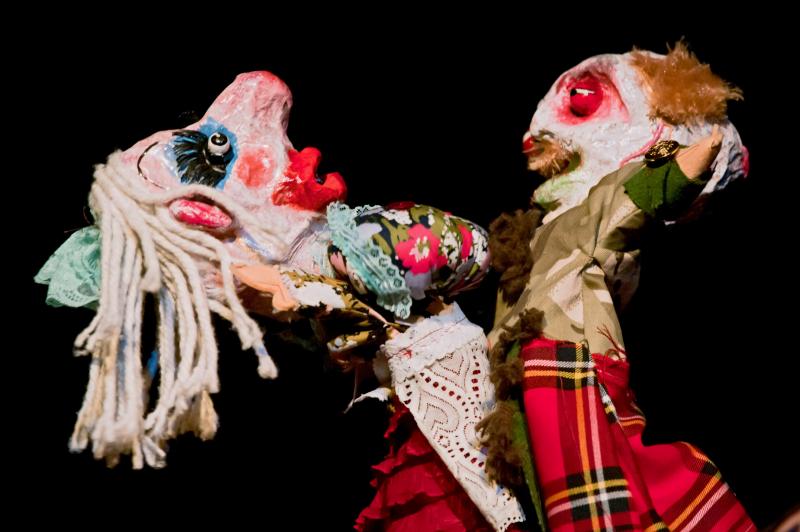On the Internet, where simple descriptions become memes, Ubu Roi is the one where the first word is "shit." It's a sharp romp that has the style of a pantomime and the bite of Spitting Image, a rough deconstruction of the myths surrounding monarchy. Ubu is a big thug, trying to hold onto power despite lacking class, authority, intelligence or skill. He's cunning though, and know how to throw his weight about. Plus he has a wife who likes the power, a prerequisite for every evil king since Macbeth.
 |
| King Ubu and his wife |
Of course, that's not entirely true, and it's no fault: but Jarry is pretty clear about the meaning of the play. Ubu isn't a possible tragic hero, like Oedipus. He's a tyrant and a twat.
However... Jarry was a puppeteer, and after Ubu was a mask show, it was marionette theatre. Starting off as a student prank, Jarry managed to get it banned from the Parisian stage, and went off to do a puppet version. And in the difference between the two iterations, an interesting aspect of the puppet is revealed.
 |
| Belusconi judges a beauty competition |
But I am more interested in the strings. At the moment, there is a version of Ubu that casts him as Mr Punch, an obvious avatar, and the point of Punch and the marionette is that they are manipulated by unseen hands. Actors, even in masks, perform the illusion of free will. Puppets are obviously not in control.
But wait: with actors, Ubu is all about how one man is driven by his self interest. It's a satire on the nature of power: not so much how it corrupts, but how the already corrupted chase and use it. Ubu is not so much a mere play, but a prediction of Berlusconi. In a sharp reverse of the usual reading of history as the story of great mean, Jarry's alternative universe has history as the story of assholes.
Put Ubu on a hand or strings, and he is not doing it. Something else is. Human agency is out the window, or hidden in the puppeteer's booth.
If Ubu isn't doing it himself, who is behind it all? The absurd universe gets more hostile.
No comments :
Post a Comment